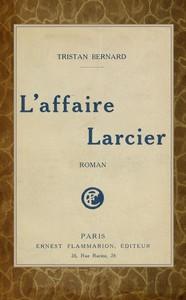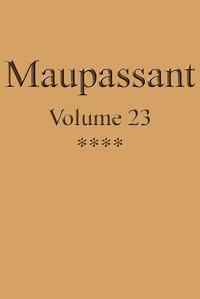|
|
Read this ebook for free! No credit card needed, absolutely nothing to pay.Words: 103862 in 51 pages
This is an ebook sharing website. You can read the uploaded ebooks for free here. No credit cards needed, nothing to pay. If you want to own a digital copy of the ebook, or want to read offline with your favorite ebook-reader, then you can choose to buy and download the ebook. INDEX 497 JURISPRUDENCE. In the widest of its applications the term jurisprudence means the science of law, using the word law in that vague and general sense in which it includes all species of obligatory rules of human action. Of jurisprudence in this sense, there are as many divisions as there are kinds of law which have been deemed sufficiently important and well developed to serve as the subject-matter of distinct branches of learning. They are at least three in number: In a second and narrower sense, jurisprudence, instead of including all three of the foregoing divisions, is limited to one only, namely, that which we have distinguished as civil. It is the science of civil law. A similar specific application belongs to the term law also, for when we speak of law without any qualifying epithet, we commonly mean that particular form which is administered in the tribunals of the state. So when we speak of jurisprudence without more, we usually intend the science of this special kind of law and this alone. Opinions may well differ to some extent as to the matters which are fit, by reason of their generality or their theoretic and scientific interest, to find a place among the contents of abstract jurisprudence. Speaking generally, however, it may be said that this science appropriately deals with such matters as the following: The divisions of legal science, as they have been stated and explained in the foregoing pages, may be exhibited in tabular form as follows: Possession } The three beneficial relations between persons and rights. Encumbrance } .nf l .nf l The kinds of Ownership. In the whole range of legal theory there is no conception more difficult than that of possession. The Roman lawyers brought their usual acumen to the analysis of it, and since their day the problem has formed the subject of a voluminous literature, while it still continues to tax the ingenuity of jurists. Nor is the question one of mere curiosity or scientific interest, for its practical importance is not less than its difficulty. The legal consequences which flow from the acquisition and loss of possession are many and serious. Possession, for example, is evidence of ownership; the possessor of a thing is presumed to be the owner of it, and may put all other claimants to proof of their title. Long possession is a sufficient title even to property which originally belonged to another. The transfer of possession is one of the chief methods of transferring ownership. The first possession of a thing which as yet belongs to no one is a good title of right. Even in respect of property already owned, the wrongful possession of it is a good title for the wrongdoer, as against all the world except the true owner. Possession is of such efficacy, also, that a possessor may in many cases confer a good title on another, even though he has none himself; as when I obtain a bank-note from a thief, or goods from a factor who disposes of them in fraud of his principal. These are some, though some only, of the results which the law attributes to possession, rightful or wrongful. They are sufficient to show the importance of this conception, and the necessity of an adequate analysis of its essential nature. In consequence of this divergence, partly intentional and avowed, partly accidental and unavowed, between the law and the fact of possession, it is impossible that any abstract theory should completely harmonise with the detailed rules to be found in any concrete body of law. Such harmony would be possible only in a legal system which had developed with absolute logical rigour, undisturbed by historical accidents, and unaffected by any of those special considerations which in all parts of the law prevent the inflexible and consistent recognition of general principles. It follows from this discordance between law and fact, that a complete theory of possession falls into two parts: first an analysis of the conception itself, and secondly an exposition of the manner in which it is recognised and applied in the actual legal system. It is with the first of those matters that we are here alone concerned. The complexities of the English law are increased by the curious circumstance that two distinct kinds of legal possession are recognised in that system. These are distinguished as seisin and possession. To a considerable extent they are governed by different rules and have different effects. I may have seisin of a piece of land but not possession of it, or possession but not seisin, or both at once; and in all those cases I may or may not at the same time have possession in fact. The doctrine of seisin is limited to land; it is one of the curiosities of that most curious of the products of the human intellect, the English law of real property. The doctrine of possession, on the other hand, is common, with certain variations, to land and chattels. The divergence between these two forms of possession in law is a matter of legal history, not of legal theory. Extraordinary importance was until a comparatively recent period attributed by our law to the acquisition and retention of seisin by the owner of land. Without seisin his right was a mere shadow of ownership, rather than the full reality of it. For many purposes a man had only what he possessed--and the form of his possession must be that which amounted to seisin. A dispossessed owner was deprived of his most effective remedies; he could neither alienate his estate, nor leave it by his will; neither did his heirs inherit it after him. The tendency of modern law is to eliminate the whole doctrine of seisin, as an archaic survival of an earlier process of thought, and to recognise a single form of legal possession. Free books android app tbrJar TBR JAR Read Free books online gutenberg More posts by @FreeBooks
|
Terms of Use Stock Market News! © gutenberg.org.in2025 All Rights reserved.







